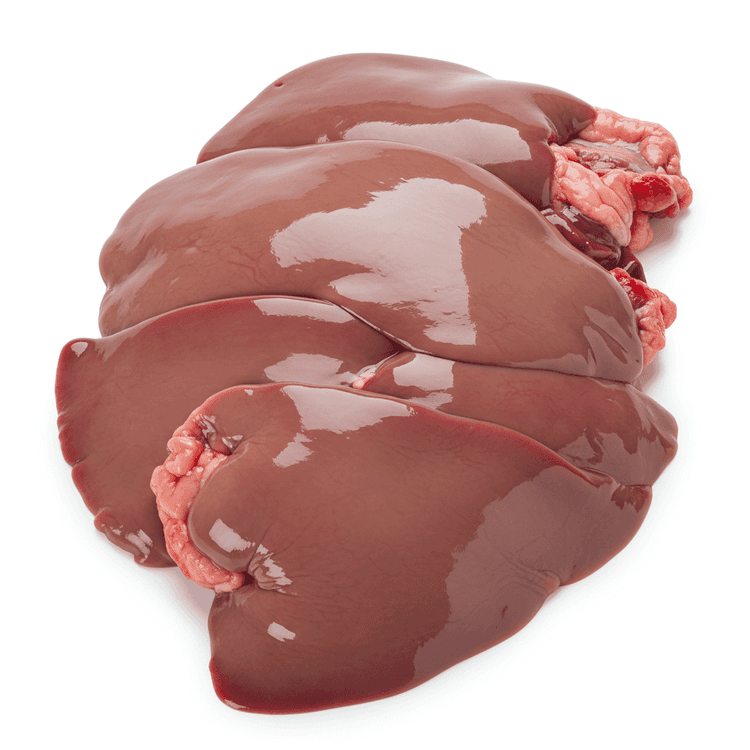
Liver
Liver is a nutrient-dense organ meat known for its rich, earthy flavor and tender yet slightly firm texture. Typically sourced from animals like cows, chickens, or pigs, liver has a deep reddish-brown color and is packed with essential vitamins and minerals, including iron, vitamin A, and B vitamins. Its bold taste makes it a versatile ingredient in various cuisines, from pâtés and terrines to hearty stews and stir-fries. Liver is a popular choice for those seeking a protein-rich, iron-boosting food with a unique flavor profile.
Common Uses
- Pan-fried liver with onions: A classic dish where liver is lightly seasoned, seared, and paired with caramelized onions for a comforting, savory meal.
- Liver pâté or mousse: Blended with butter, cream, and seasonings, liver is transformed into a smooth, spreadable delicacy often served with crackers or bread.
- Liver in stews or soups: Adds depth of flavor and a nutrient boost to hearty dishes like liver and vegetable stew or traditional soups.
- Stir-fried liver: Common in Asian cuisines, liver is sliced thinly and stir-fried with garlic, ginger, and vegetables for a quick, flavorful dish.
- Liver as a stuffing ingredient: Chopped liver is used in stuffing recipes for poultry or as a filling for dumplings and pastries.
- Grilled liver skewers: Marinated liver pieces are skewered and grilled, offering a smoky, charred flavor perfect for appetizers or main courses.
Nutrition (per serving)
Nutrition (per serving)
Calories
165.0kcal (8.25%)
Protein
25.8g (51.6%)
Carbs
0.0g
Sugars
0.0g
Healthy Fat
2.2g
Unhealthy Fat
1.6g
% Daily Value based on a 2000 calorie diet
Nutrition (per serving)
Calories
165.0kcal (8.25%)
Protein
25.8g (51.6%)
Carbs
0.0g
Sugars
0.0g
Healthy Fat
2.2g
Unhealthy Fat
1.6g
% Daily Value based on a 2000 calorie diet
Health Benefits
- High in essential nutrients like iron, vitamin A, and B vitamins, making it a nutrient-dense food for energy and overall health.
- A rich source of protein, supporting muscle growth and repair in balanced diets.
- Contains selenium and zinc, which are important for immune system support and metabolic functions.
- Popular in low-carb and ketogenic diets due to its low carbohydrate content and high nutrient density.
- Known for its strong, savory flavor, making it a key ingredient in traditional dishes like pâtés, stews, and liver and onions.
Substitutes
Chefadora AI is here.
Experience smarter, stress-free cooking.
Storage Tips
Store fresh liver in the refrigerator at 32°F to 40°F (0°C to 4°C) and use it within 1-2 days for optimal freshness. For longer storage, freeze liver in an airtight container or freezer-safe bag, ensuring it is tightly sealed to prevent freezer burn. Thaw frozen liver in the refrigerator overnight before cooking. Avoid leaving liver at room temperature for extended periods to maintain safety and quality.

